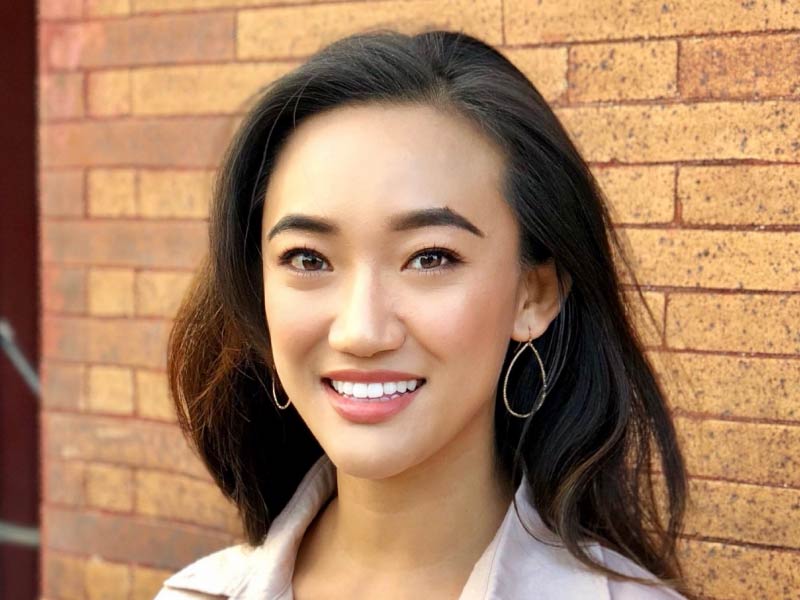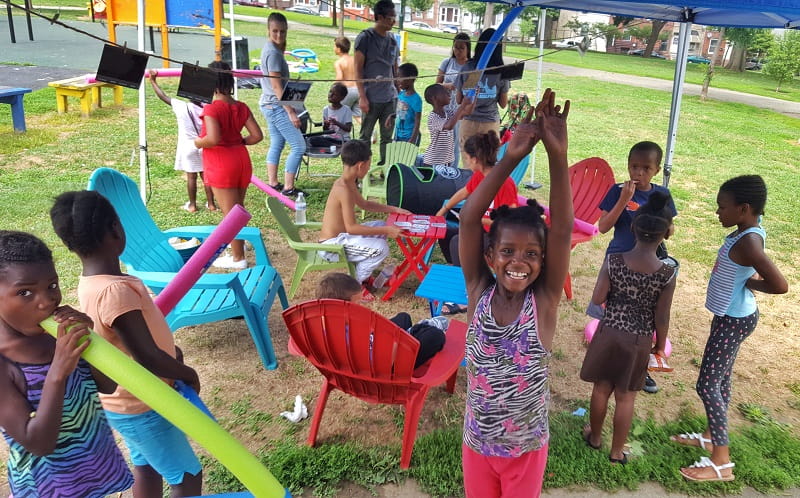Medical school project pushes healthy habits 'beyond hospital walls'
By American Heart Association News

During her third year of medical school, Terry Gao learned how classroom training doesn't always answer real-world questions – like how to get people to eat better.
As part of an internal medicine rotation at a hospital, she treated patients who returned again and again with the same ailments, especially heart disease and diabetes. She saw firsthand the difficulties communicating the importance of diet and nutrition.
"Treating diseases like those depends on a healthy lifestyle and food intake," said Gao, 24, a class of 2020 M.D. candidate at Thomas Jefferson University in Philadelphia.
So Gao decided to learn more about the communities she serves. She stepped out of her education path for a year and became a yearlong research fellow in the Jefferson Health Design Lab. Its mission of "bringing health beyond hospital walls and directly into neighborhoods" resonated with her.
"You need to have some insight into where people come from," she said. "For instance, you can't counsel people about eating healthy if you don't know about their lives. I can't tell someone to buy more fruit and vegetables if they're the most expensive options and they have to travel an hour to get them."
Gao helped steer the lab's first pilot project, CoLabPHL, by giving it a healthy food focus. CoLabPHL uses an Airstream trailer to deliver health programming to a community. They focused on the Kensington area, 4 miles northeast of downtown Philadelphia, because of the area's income levels, struggles with the opioid epidemic and limited access to healthy food.
"A lot of economically disadvantaged people feel like health care is something exclusive, only for the well off, and that doctors don't care," Gao said. "One way we showed we care is by going to the place people feel more comfortable – in their own setting.
"Kensington gets a lot of attention for being at the center of the opioid epidemic, but at same time there are tons of people who live in that neighborhood who aren't a part of that and are overlooked."

Last summer, a group of CoLabPHL faculty members and interns made eight weekly visits to McPherson Square, a popular neighborhood gathering area.
They worked with local organizations and handed out refreshments, organized children's games and science workshops, and provided adults with blood pressure screenings and HIV counseling. They also distributed health education information and recipes in English and Spanish.
Zoë Van Orsdol, a public health projects manager with a local organization called Impact Services that provides social services in Kensington, said the organizers of CoLabPHL impressed her by delving deeply into the neighborhood.
"I liked how they were interested in focusing not on what they do at the hospital," Van Orsdol said. "They were really trying to be involved and understand and appreciate all the nuances here and really paying attention to how people respond."
When you ask questions and listen carefully, sometimes you hear answers you don't always expect or necessarily want to hear, Gao said.
For example, she pulled the plug on a program she developed after listening to community feedback. The plan was to provide residents with low-priced, ready-to-make healthy meal kits, with minimal preparation needed.
"After extensive conversations, we heard many reasons why it would not work," Gao said. "We decided that the best way to address healthy eating is to be smart about amplifying existing programs, and we can deliver the educational component through another organization."
This summer CoLabPHL will partner with PhilAbundance, a hunger relief organization that sponsors free produce markets. CoLabPHL will serve as a distribution point in Kensington and provide nutrition and cooking lessons.
Gao's fellowship in the Design Lab ends this spring, and though she plans to stay involved with CoLabPHL, she'll be moving on to her final year in medical school.
She'll be returning with a renewed passion for humanizing health care.
"This past year has shown me that sometimes the best way to combat that frustration is to ask deeper questions and connect to people on a deeper level," she said. "The more I understand about the problems people have to face, the more I will be able to think creatively about alternative solutions."
If you have questions or comments about this story, please email [email protected].





